Last updated on September 5th, 2024
Sleep pods offer a new alternative for layovers and delayed flights
by Carolyn Ray
On a recent trip from Bali, Cathy Gotfried spent the night in a sleep pod at the Digital Airport Hotel in Jakarta when the only airport hotel was full.
“I felt very safe,” she recalls. “There was great lighting in the wide hallway and mine had a digital card to enter. They also stored my suitcase as it would not have fit in the pod. It felt a bit coffin-like, but I visualized that I was in a First Class Pod on an airplane. I would do it again if my choices were limited at an airport. Mine had a TV, wifi, mood lighting, a decent mattress (smaller than a twin bed) covered by a sheet, blanket, towel and pillow.”
For $32USD per night, it was a great deal. But Gotfried, who regularly travels to Bali with her women’s tour company Babes in Bali, says it may not be for everyone.
“If you’re claustrophobic it would be hard to stay in a pod,” she says. “I actually slept okay from 2:00 am to 7 am, but the bathroom was out a back door and across a hallway in the airport.” Gotfried recommends bringing good earplugs if you’re staying in a plastic unit. “It can be noisy, because the units are made of plastic so every time someone opens or closes the sliding panel to get in or out, it vibrates. You can hear the zippers opening and closing on your neighbour’s bags.”
What is a sleep pod?
An airport sleep pod (sometimes called nap pods) are small, capsule-shaped beds. For the weary traveller, sleep pods allow you to lie flat, or even use a reclining chair, which can feel like heaven after a long-haul or delayed flight. The importance of good quality sleep is something that any traveller understands; alongside the benefits of sleep to reduce fatigue and stress, increase energy and enhance learning.
Japanese architect Kisho Kurokawa designed the original sleep pod in 1979 and created Osaka’s Capsule Inn. Capsule hotels provide cheap, basic overnight accommodation for guests who do not require or who don’t want to pay for larger, more expensive rooms offered by conventional hotels. (Find a capsule hotel here.) Today, there are different kinds of sleep pod products, including small suites, meeting spaces and even entertainment pods. They are also seen in corporate environments, hospitals, universities, and other public places.
Like a hostel, sleep pods have shared bathrooms and some offer luggage storage areas, showers, power outlets for charging electronic devices, reading lamps, and wi-fi connectivity. Many operate as lounges, not hotels, which is why Priority Pass cardholders offer access to some airport sleep lounges or suites as part of membership benefits. (Note: In our last budget survey, Priority Pass was given low marks by our readers for return on value, but perhaps it’s worth revisiting).
Where can you find sleep pods?
Sleep pods offer solo women a private sanctuary when travellers encounter long connection times, flight delays, flight cancellations, or an early arrival at the airport. For solo women, the pricing is attractive, with hourly rates ranging from US$30 to $50 an hour, although some operate like a hotel with a check in around 3:00 pm and a check out between 11:00 am to noon. Several offer gender-specific areas and rooms. There are many different business models in the sleeping pod business so do your research before committing.
We looked at eight companies — both lounges and hotels — offering sleep pods, sleep capsules and sleep suites in airports.
1. Passgo Digital Airport Hotel in Indonesia (Bali)
PassGo Digital Hotel in Bali has 132 rooms at Ngurah Rai International Airport in a double-decker format, starting at around US$30 a night. These capsules contain a bed, wifi and there is 24-hour room service. They can be booked on Booking.com or Expedia.
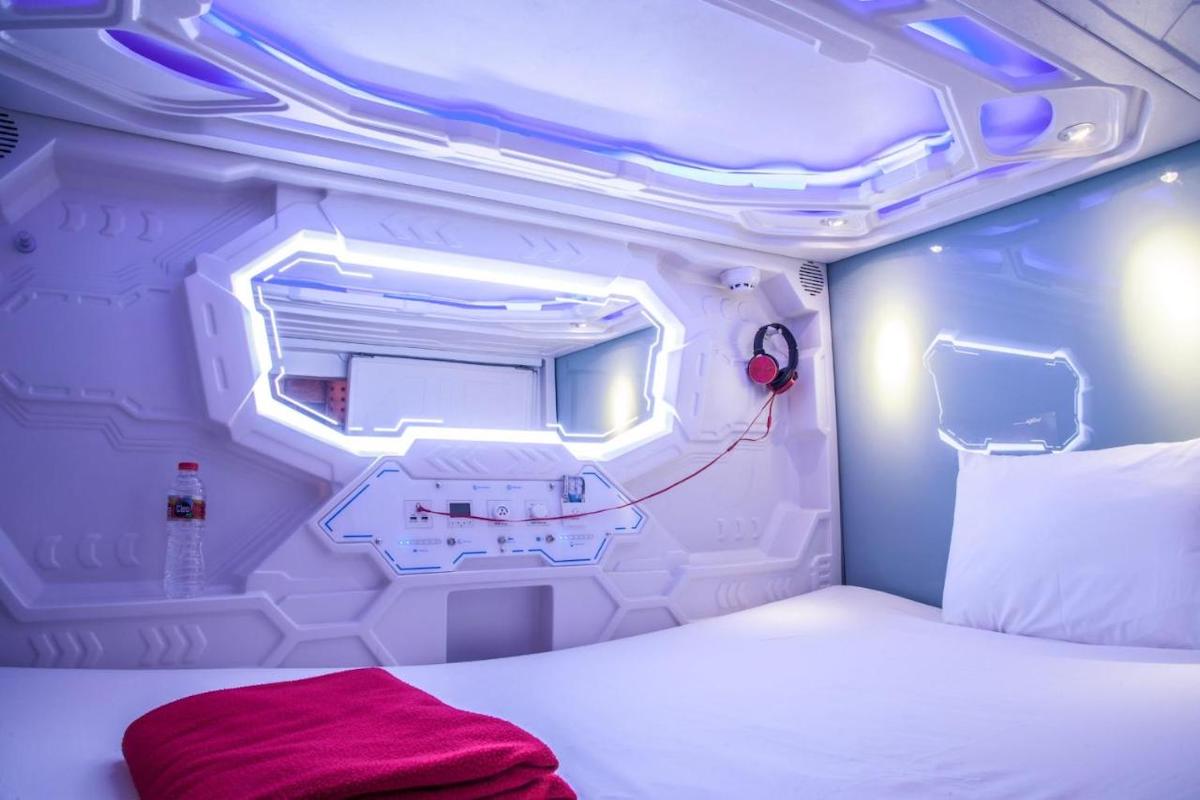
2. NapCabs (Germany)
NapCabs offers premium cabins in airports in Munich, Brandenburg/Berlin, and Frankfurt. Some are located in the public areas of the airport, while others are behind security and require a visa to stay overnight in Germany, according to the website. The rooms are not accessible and are placed near departure gates in a cluster or as a single cabin. The maximum duration limit for Napcabs is 12 hours, and the minimum is 1 hour. At the Munich airport, one hour is €34 and 12 hours is €164, coming in significantly lower than hotels.
To book a room, go to booking.napcabs.com and choose your airport, time and contact information.
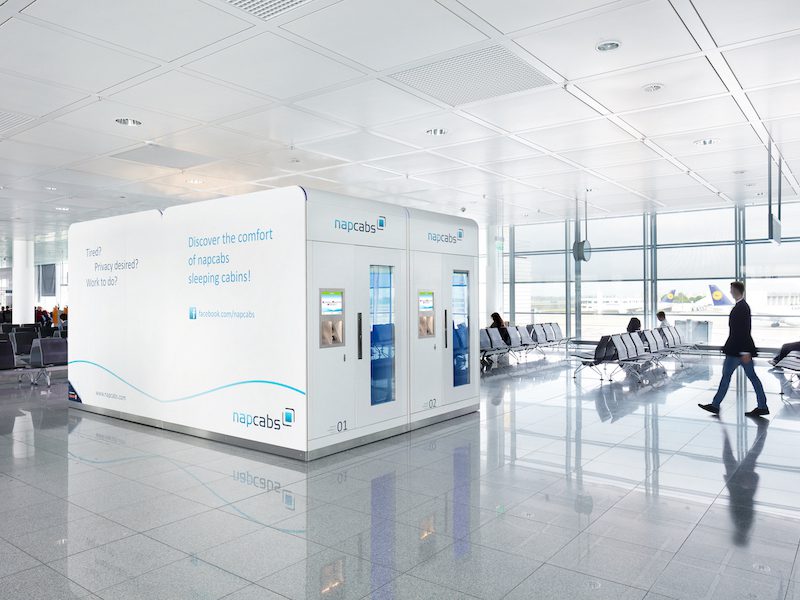
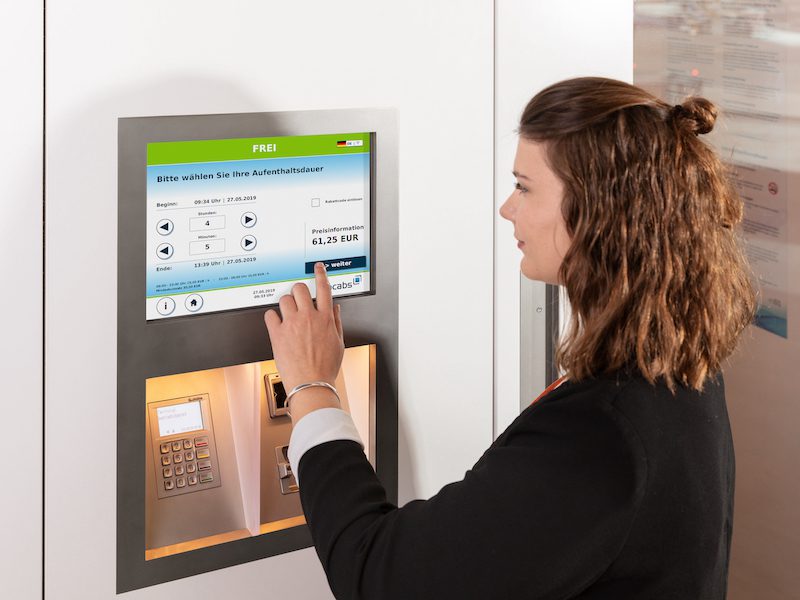
3. YOTELAIR Capsule Hotels (Europe and the UK)
For more of an upscale sleep experience, YOTELAIR has sleep capsules at several airports in Europe and the UK, including Amsterdam Schipol, Istanbul, Paris Charles de Gaulle, Heathrow Airport and Gatwick Airport. The airside capsule hotels are within the Duty Free area of the terminal. Guests staying at YOTELAIR (airside) MUST have a valid boarding pass for an international flight and only hand luggage is permitted.
All cabins are ‘blackout’ cabins and include a Standard Cabin (ideal for 1 guest), Premium Cabin: 2 adults, 2 adults with 1 child under 5 or 1 adult and 2 children. There is also a Family Cabin for 4 adults or 2 adults and 2 children. Shower cabins are bathrooms featuring rain showers, Urban Jungle shower gel, shampoo and conditioner, and towels. For a four-hour stay, a Solo Cabin starts at €95, a Premium Queen Cabin is €110 and a Family Cabin starts at €125. To book, go to the YOTELAIR website or use Expedia (which allows for additional discounts depending on your status).
In August 2023, Yotel announced a partnership with JetBlue’s newly relaunched TrueBlue® loyalty program, where TrueBlue members of all levels can now earn TrueBlue points on stays at YOTEL locations around the world, be eligible for exclusive discounted room rates, and receive a complimentary amenity on arrival. YOTEL also has YOTELPAD hotels in Miami, London and other cities for longer stays, and 16 YOTEL hotels in the US, UK, Asia and Europe.
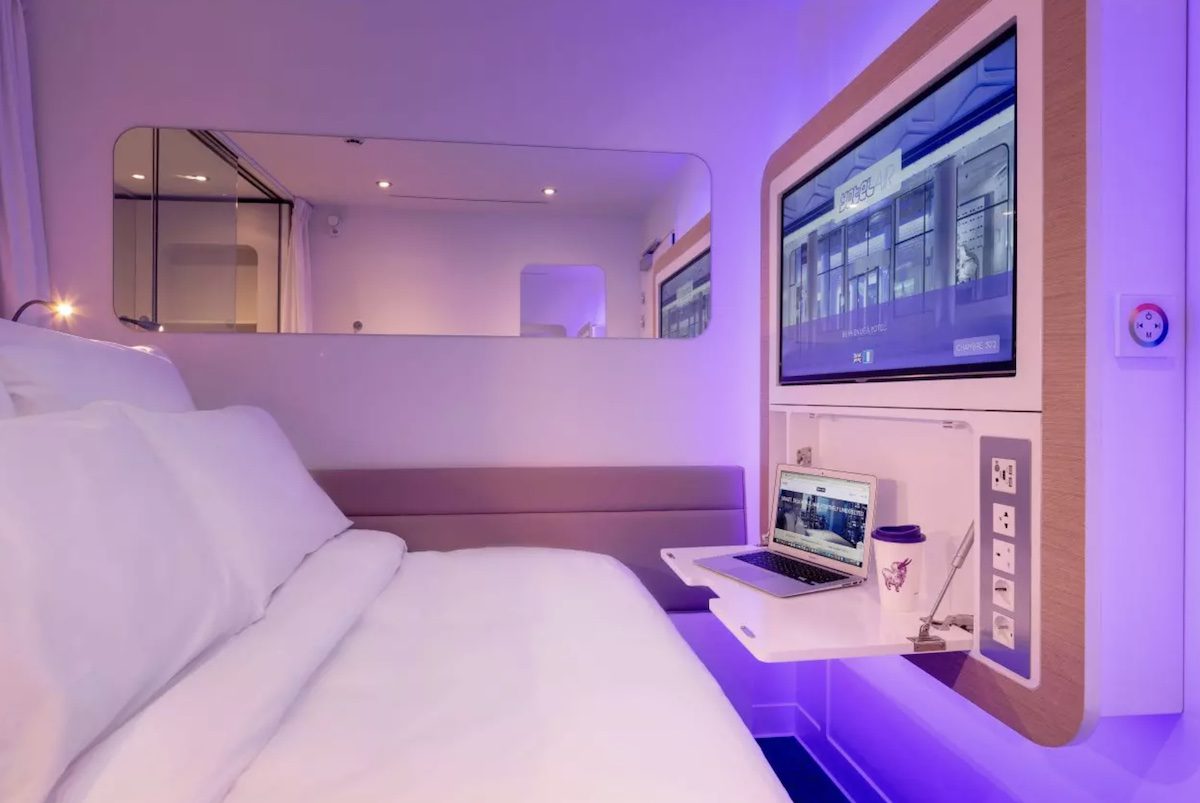
4. sleep ‘n fly (Dubai and Doha)
Established in 2013, Scandinavian-designed sleep ‘n fly has several locations at Dubai International Airport (DXB) at Terminals 1 and 3, Concourses A, B, C and D, and Qatar’s Doha Hamad International Airport (DOH) in the South and North Nodes.
sleep ‘n fly are lounges dedicated to sleep, but they are not a hotel. There are a range of cabins, with FlexiSuite pods (lounge chairs that recline), business pods, showers and a lounge experience with stunning views to unwind and enjoy a coffee or soft drink. The Igloo Sleep Pods, (Power) Nap Sleep Pods and FlexiSuite Pods accommodate one person, whereas the YAWN Lite Cabins can accommodate up to two people and the YAWN Double/Family Cabins have space for maximum two/four people and a child in a separate pull-out bed. The YAWN Bunk Cabins can accommodate two people.
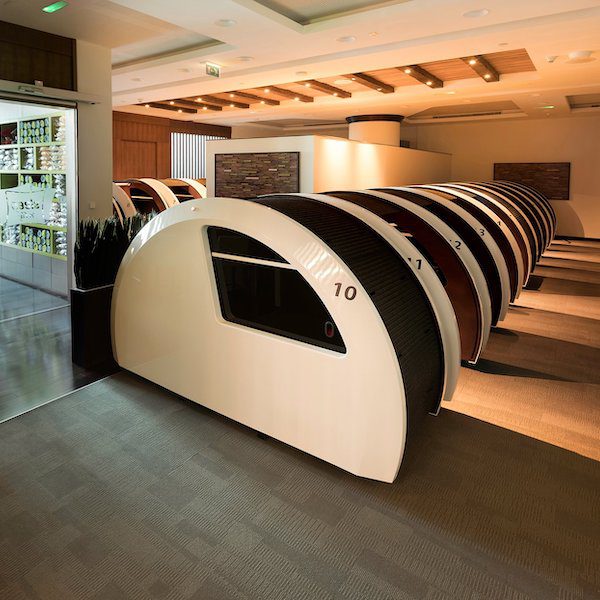
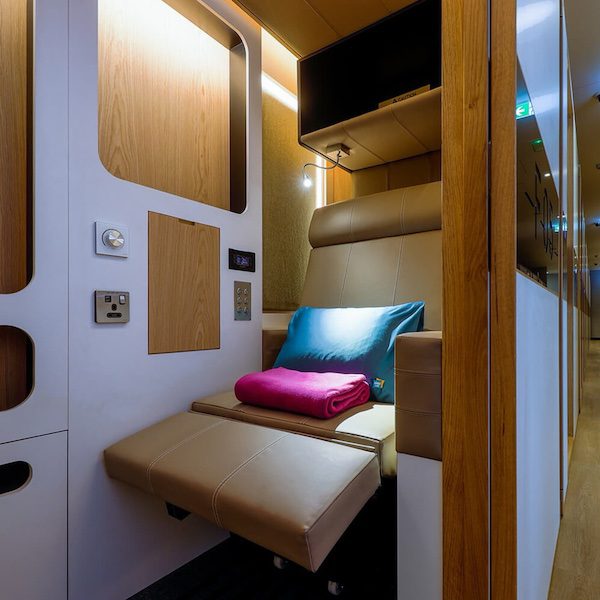
In 2023, sleep ‘n fly was awarded with two TripAdvisor Travellers’ Choice Awards. Members of Priority Pass or LoungeKey receive access and discounts as a benefit.
5. Capsule Transit (Kuala Lumpur, Malaysia)
Capsule Transit has three different types of sleep pods to cater to various travellers in Kuala Lumpur. There is a Capsule Transit Sleep Lounge (sleep only) at Kuala Lumpur Airport, Terminal 1. The sleep lounge must be booked for a minimum of 3 hours for RM RM105 or USD $25. On Expedia, a Capsule Women-only single (maximum 12 hours) is USD$55 and includes air conditioning, a hair dryer, bidet, free bottled water, daily housekeeping and a front desk.
Capsule Transit Airside and Capsule Transit Landside sleep pods are available at Terminals 1 and 2. Every pod is equipped with two pillows, a comfortable single bed, and a duvet – perfect for a quick nap. Guests have access to shower facilities at Terminal 2 and will also receive an amenity bag, which includes the essentials needed for a restful stay. This includes a towel, dental kit, drinking water, sleeping mask and earplugs.
The Capsule Transit MAX 4-star hotel at Sepang, Selangor, Malaysia includes a bar, restaurant, free WiFi, and private bathroom. At the hotel, rooms are equipped with a desk and a flat-screen TV. On the Capsule Hotel website, a deluxe Queen at MAX is RM289/US$65 for a three-hour stay. According to its website, the hotel property, common areas and facilities are sanitized every 2 hours and there are separate areas for women.
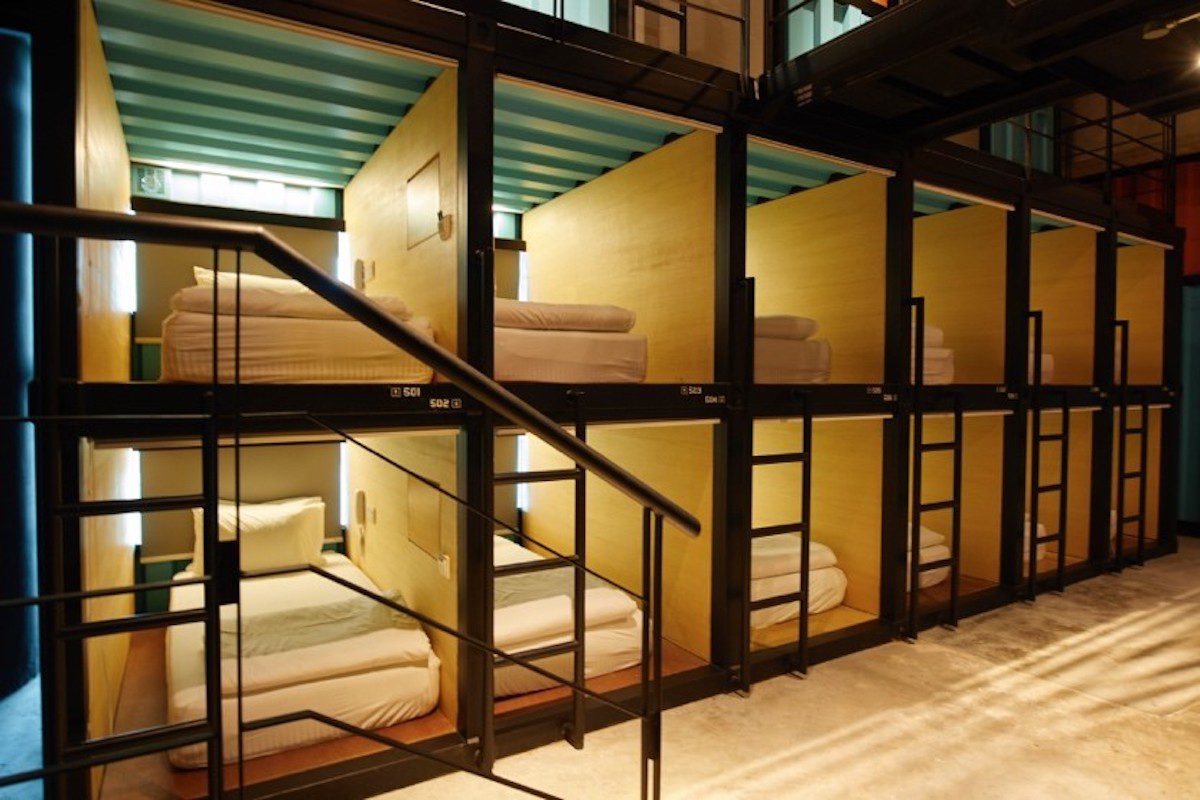
6. izZzleep (Mexico)
IzZzleep has three sleep pods in Mexico City, at Terminal 1 and Terminal 2 of Mexico City International Airport, and the World Trade Center Mexico City. Rooms can be booked on Booking.com, and the cost varies depending on the day, starting at about US $108 for one bed for one night.
IzZzleep Aeropuerto Terminal 1 offers rooms with air conditioning and a shared bathroom in Mexico City. The shared bathroom is equipped with a shower, free toiletries and a hairdryer. At the capsule hotel, all rooms come with bed linen and towels. At Terminal 2, rooms are fitted with a flat-screen TV with cable channels and a safety deposit box. No pets or companion animals are permitted.
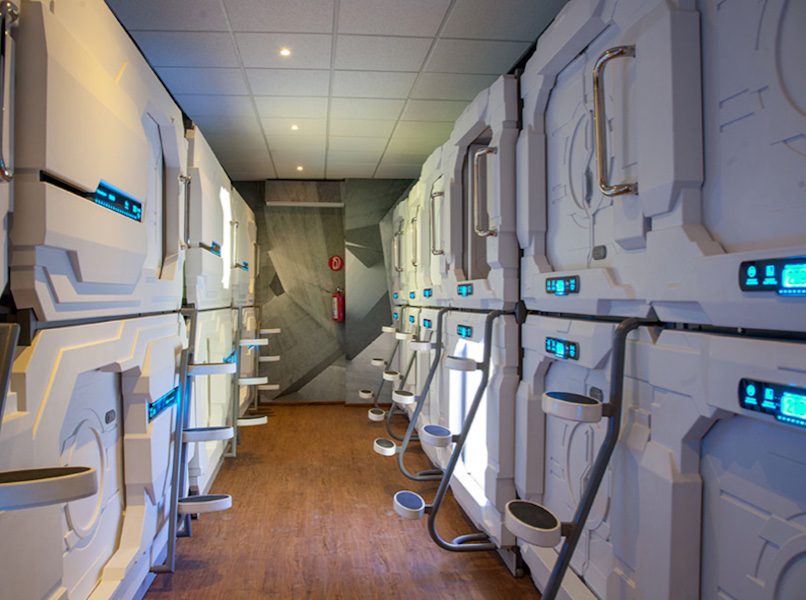
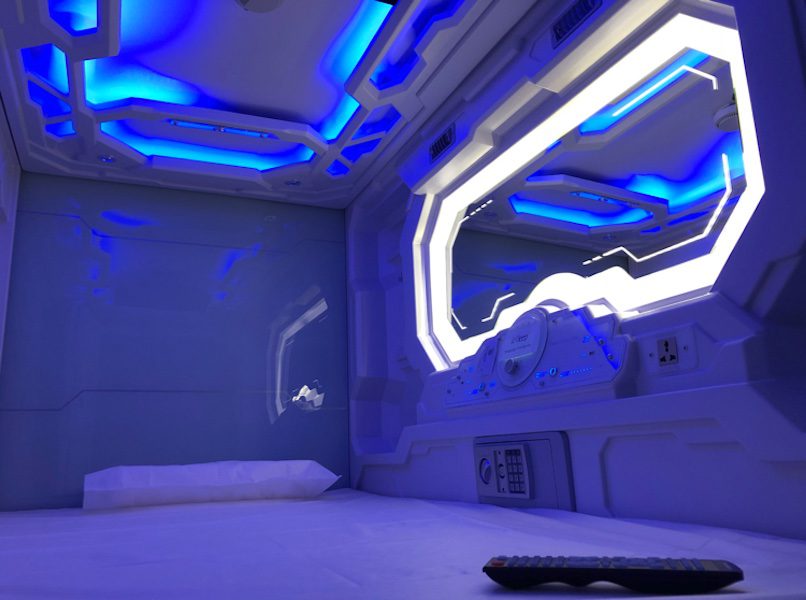
7. 9H Nine Hours (Japan)
9h nine hours, a contemporary capsule hotel, welcomes travellers facing long layovers or those simply in need of a brief reset. Its award-winning architecture and graphics are thoughtfully conceptualised by internationally renowned designers Fumie Shibata and Masaaki Hiromura. Complete with meticulously selected high-quality amenities by Japanese brands, the hotel houses 129 capsules and provides 24/7 service. Book a room on booking.com here.
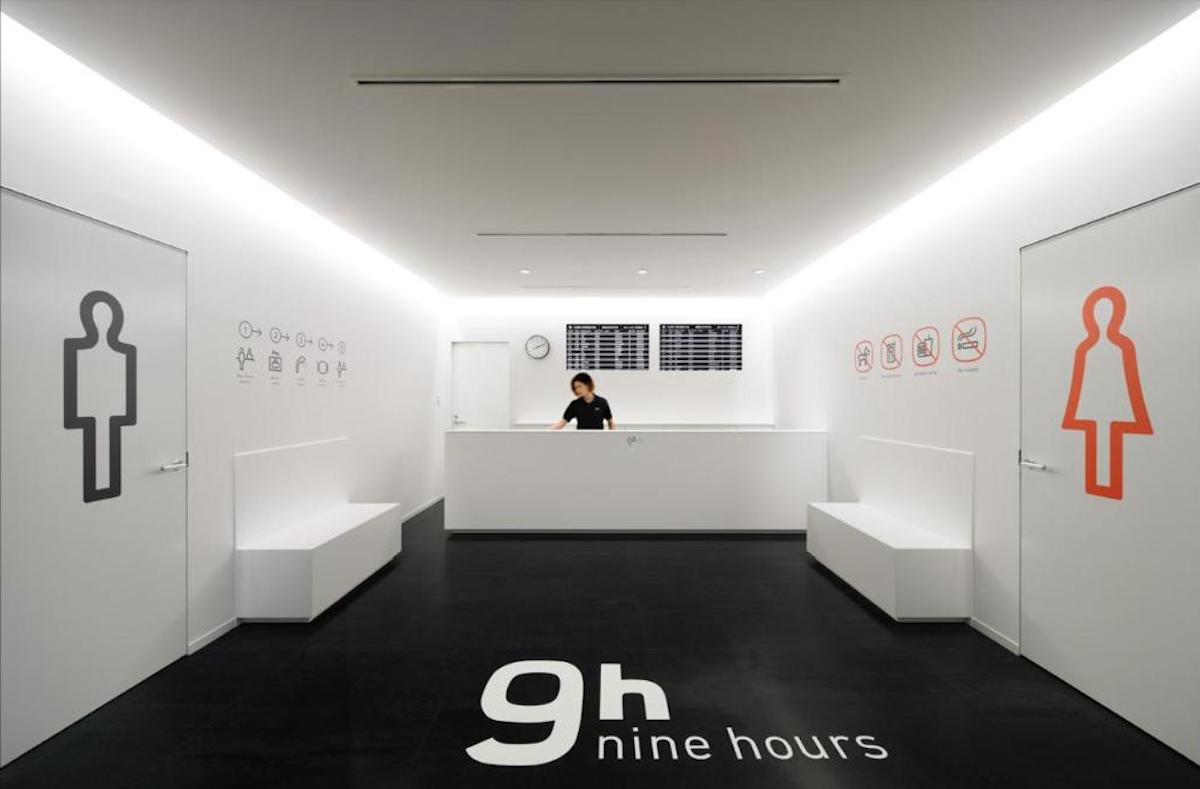
8. Minute Suites (USA)
More of a sleeping suite than a sleep pod, Minute Suites launched at Hartsfield-Jackson Atlanta International Airport in 2009. Today, it has expanded into 10 other airports including Charlotte, Philadelphia, New York JFK, Dulles Fort Worth, Nashville, Detroit and Salt Lake City. The company also offers premier suites at DFW. Minute Suites provides an actual suite with a daybed, a TV, and a desk in order to facilitate their customers with entertainment, sleep and work. The Minute Suite’s average price starts at $42 per hour and $10.50 for an additional 15 minutes.
Minute Suites also has a discounted program available with Priority Pass, where members can get prices at a discount, including one hour at no charge.
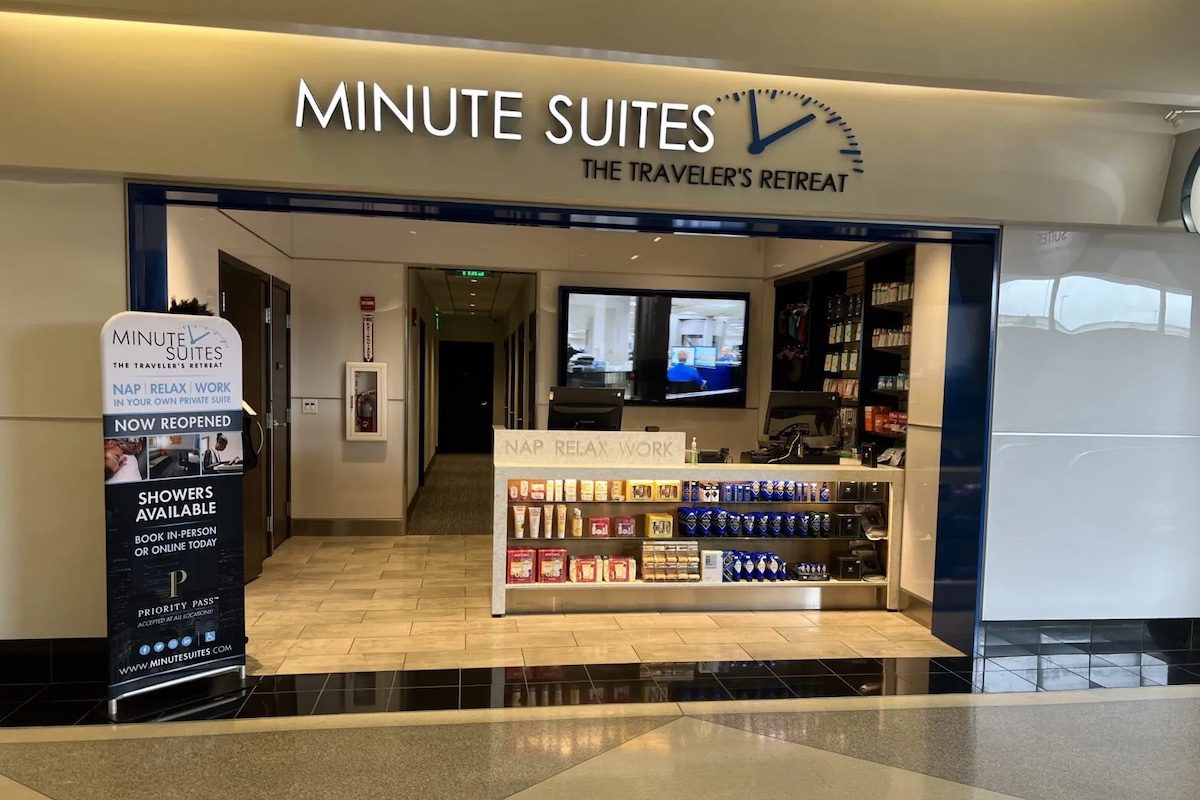
Is a sleep pod in your future?
With delays, cancellations and weather playing an ever-present role in our travels, sleep pods can be a safe, affordable option for solo women. For some, it may require overcoming fears of claustrophobia or small spaces, but the benefits of a good sleep close to your departure gate are appealing to those who find cost and time efficiencies staying right at the airport.
If you encounter other sleep pods on your travels, let us know about your experience in the comments below.
More on Accommodations
Where to Stay in Lisbon, Portugal: Recommendations From Solo Women
Women share their top choices on where to stay in Lisbon, Portugal, including hotels, hostels, and affordable options across the city.
Where to Stay in Barcelona, Spain: Recommendations From Solo Women
Women share their recommendations on where to stay in Barcelona, Spain, including hotels, hostels and affordable accommodations.
Home Exchanges and Housesitting: A Way For Seniors to Travel Responsibly and Save Money
Home exchanges and housesitting are a safe, affordable way for seniors to save money on travel while learning about local culture and traditions.

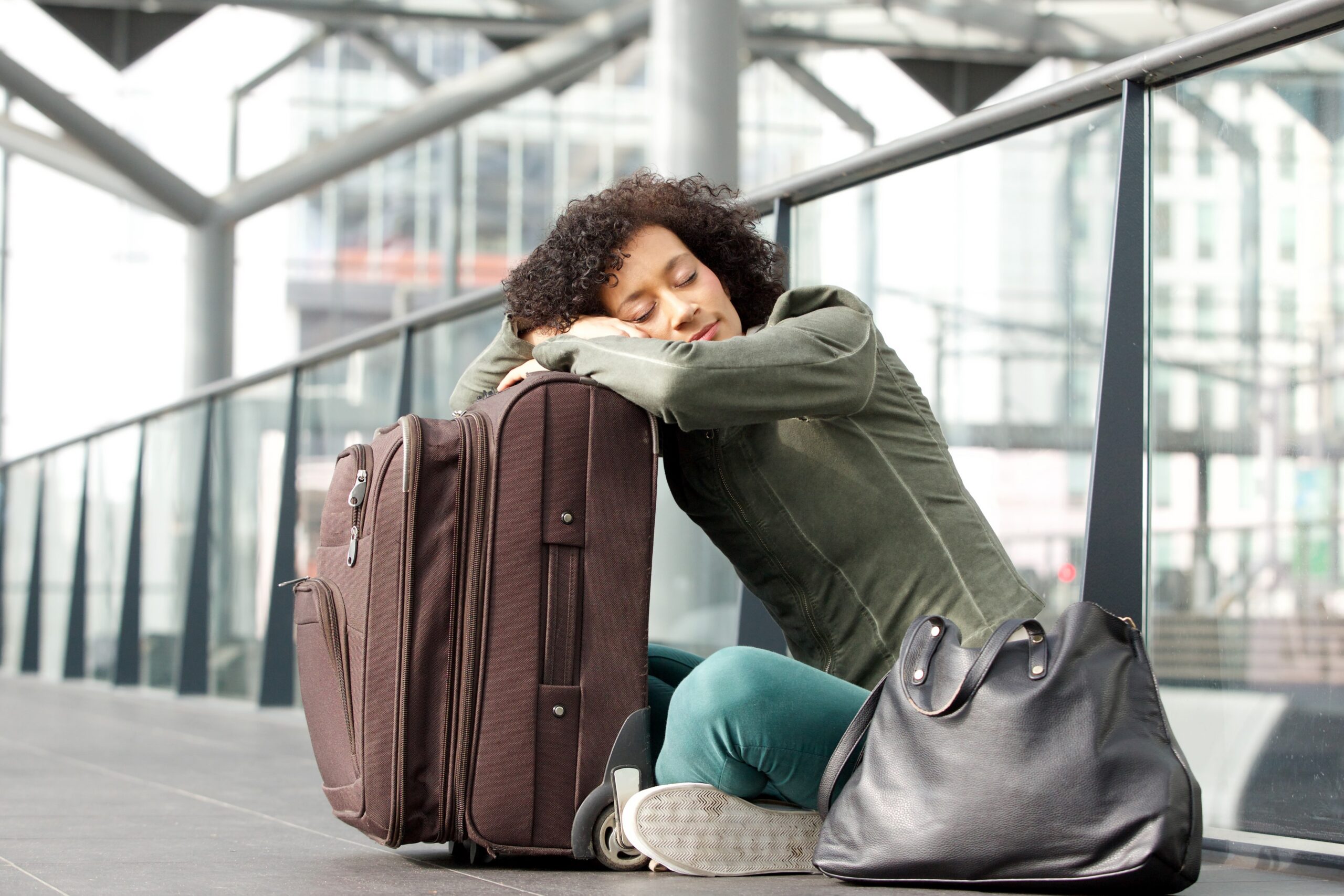






I’ve stayed in capsule hotels before in different countries in Asia, but never one in an airport! I’d be concerned that the noise level would make it too difficult to sleep comfortably. I suppose if you’re using one, though, it’s because you only need to sleep a little bit before your flight anyway.
I used one of the MInute Suites in Dallas recently and found it just perfect for my needs. I needed a quiet space during a long layover, and place to lie down for a quick nap. It had a couch and a nice blanket and pillow ready, plus a TV (which I didn’tuse), and a desk and hookups for computers.